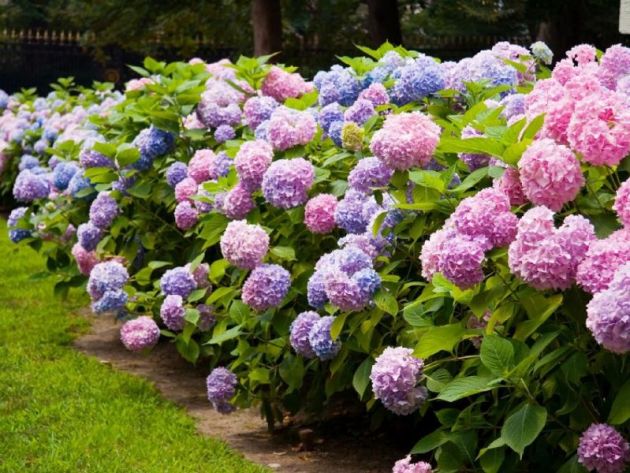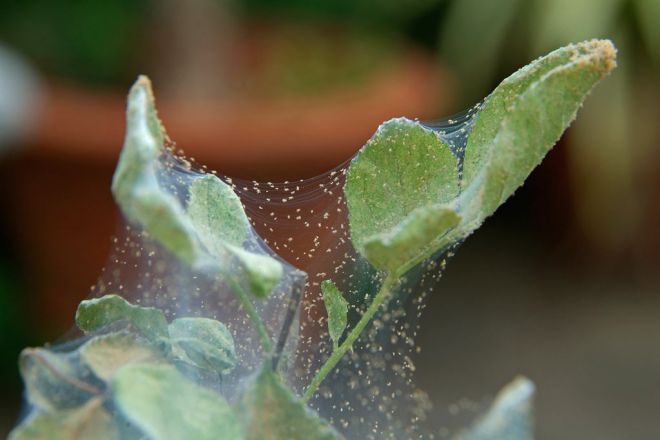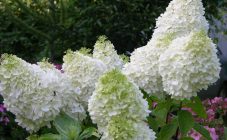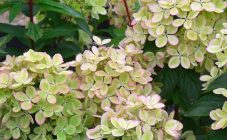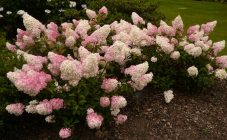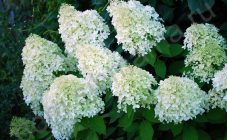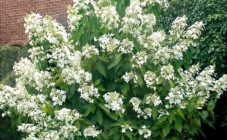Content:
You can decorate any backyard area or summer cottage with a luxurious hydrangea. It is not particularly difficult for this plant to create optimal conditions. Breeders have been developing new, improved varieties over the years. However, the Eternal Summer hydrangea remains a favorite option for many gardeners. Throughout the summer season, the owner of the garden will be able to admire the beauty and wonderful aroma of these lush plants.
general information
Hydrangea Endless Summer has earned its name for its unique ability to bloom twice in one season. This "mutation" was bred by breeders and is considered the most successful among other varieties.
Also, the large-leaved hydrangea Endless Summer is characterized by increased resistance even to severe frosts. However, the most surprising feature is that it is able to bloom first in June, and then again, after 5 weeks. As a result, the flowering process is repeated until mid-autumn.
Description of the variety
The Endless summer hydrangea was developed by breeders in the United States in the 1980s. Hydrangea earned increased attention during the period of severe frosts, when in the states many plants were frozen. Flower lovers noticed that only this plant managed to bloom in early spring. Subsequently, a new variety of this hydrangea was bred - a tall shrub with spherical large inflorescences with different shades - from light blue to pink.
- The flower reaches two meters in height, and up to a meter in width.
- This variety is characterized by strong matte dark green foliage, which is framed by jagged edges.
- The hydrangea bush grows into a flexible but sturdy shoot.
- The shoots in the first years of life have a dark green color, but as they grow, they become darker and gradually lumber.
- Hydrangea has a round and compact shape.
- During flowering, massive and bright inflorescences appear, which reach 15 cm in diameter.
- The color depends on the level of acidity of the soil in which the plant grows: the alkaline environment promotes the formation of pink inflorescences, the acidic earth leads to the appearance of blue flowers.
Cultivating Hydrangea Everlasting Summer
The optimal soil for planting this variety is acidic soil. Even a novice gardener can easily cope with planting and caring for hydrangea Eternal Summer.
Description of planting and care:
- To begin with, you should purchase hydrangea seedlings Eternal Summer. Landing in open ground is done in the spring before the buds appear, but after the snow melts.
- Sunny open areas are suitable for this variety, but shrubs will need darkening at noon, otherwise the leaves and buds may burn.
- The best option is to plant in elevated places, since prolonged stagnation of moisture has a detrimental effect on the hydrangea root system.
- Before planting, the site is dug up, weeds are removed and the roots of other vegetation are selected.
- Then you should dig the planting holes, the depth of which is about 50 cm deep and the same width.
- Then you need to prepare a fertilizer mixture of soil, peat and humus. Experienced gardeners also recommend placing small stones or pebbles at the bottom of each hole to prevent moisture stagnation.
- The soil should be poured abundantly with water, the selected seedlings should be placed in the prepared holes and sprinkled with a mixture of fertilizers.
Care
Preventive measures and attention are timely watering, loosening the soil, mulching and fertilizing. It is quite simple to care for this shrub, since the standard procedures are within the power of novice gardeners.
- Watering.
Large-leaved hydrangea Endless summer is a fairly moisture-loving plant. Therefore, it will be necessary to constantly maintain soil moisture.
It should be watered with rainwater, which accumulates in barrels. If this is not possible, then ordinary water is used, which is pre-heated in the sun. For watering and proper cultivation, the drip method should be chosen.
- Top dressing.
Fertilizer mixtures are applied in spring and summer. At the beginning of summer, an accelerated growth of the bush is noted, therefore, the introduction of mineral fertilizers with nitrogen will be required. The proportions of this mixture are as follows: a tablespoon of fertilizer per square meter.
The second feeding is carried out during the period of bud formation. Fertilizer mixtures must contain potassium. Superphosphate is often added in summer.
- Mulching.
Hortense Endless Summer needs cleanliness. For health and beauty, weed removal and soil loosening are required.
Then it is necessary to prevent the evaporation of moisture and overheating of the roots by mulching with bark or peat.
- Pruning.
Hydrangea Everlasting summer, the original needs almost no pruning. Decorative pruning and removal of diseased or frozen shoots will be enough for this shrub.
Diseases and pests
Hydrangea Everlasting summer is quite resistant to powdery mildew, but at the same time sensitive to the water used for irrigation. Due to the high alkali content, the shrub can undergo chlorosis. Therefore, it is better to use rainwater for the plant.
If the bush is affected by downy mildew, special preparations are used that contain copper.
Spider mites are another important problem and the main pest of hydrangeas. Chemical spraying is used to get rid of a harmful insect.
Landscape: use in garden decoration, flower beds
Spectacular and lush hydrangea variety Blooming summer can become a real decoration of any garden or suburban area. Constant flowering throughout the summer season allows the use of hydrangea for decorative purposes.
This bright winter-hardy shrub is planted nearby, lining up with a flowering fence or hedge. But also this plant is planted with single shrubs to decorate the suburban area. In one flower bed, as a rule, plants with different shades of inflorescences are combined.
The large-leaved shrub of hydrangea is the most amazing representative of ornamental plants, as it is distinguished by its lush and spectacular flowering. If you choose this flower for planting on your site, you can provide yourself with a beautiful scenic view for the entire summer season. At the same time, it is worth noting the simple care and unpretentious conditions for growth.
